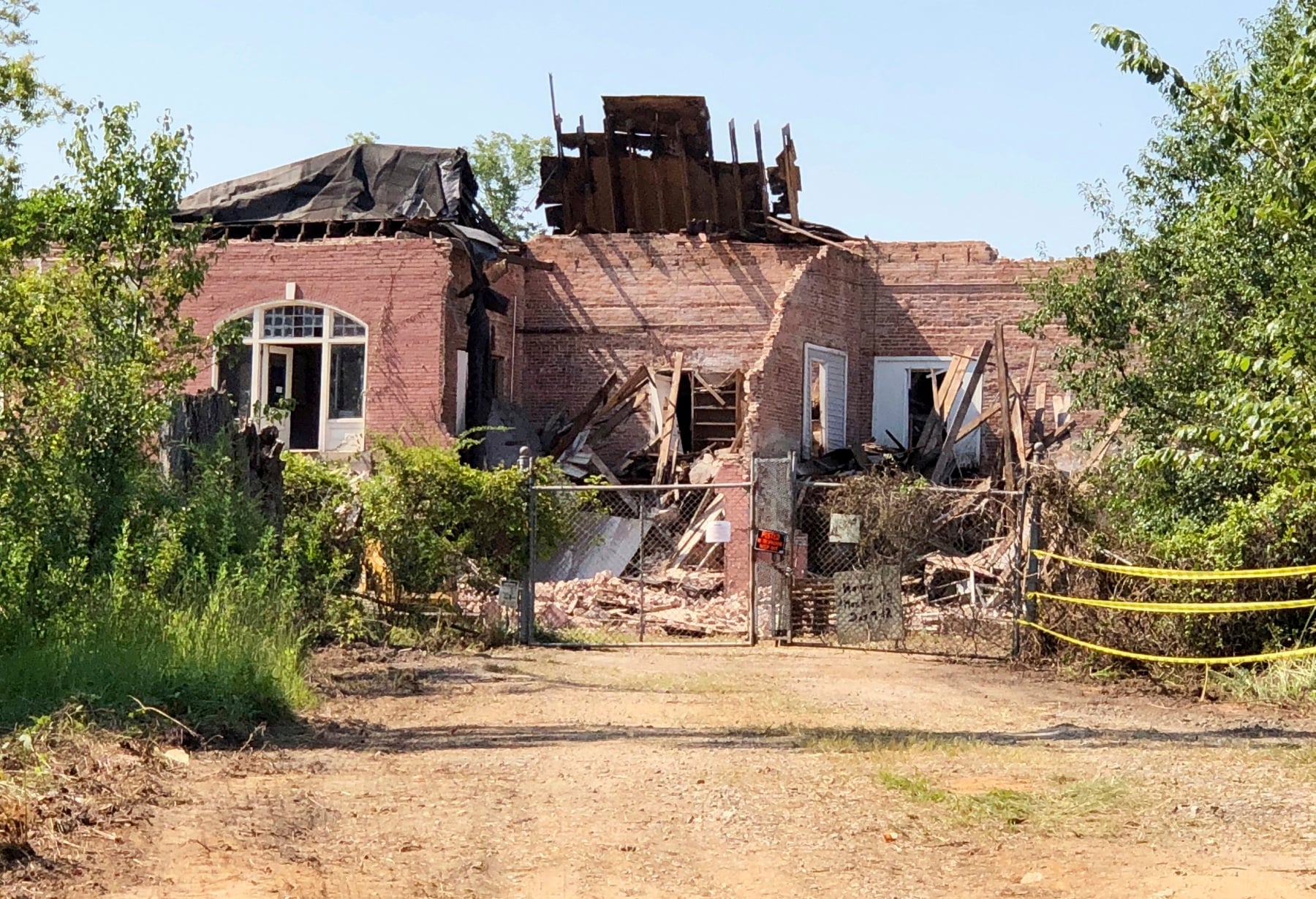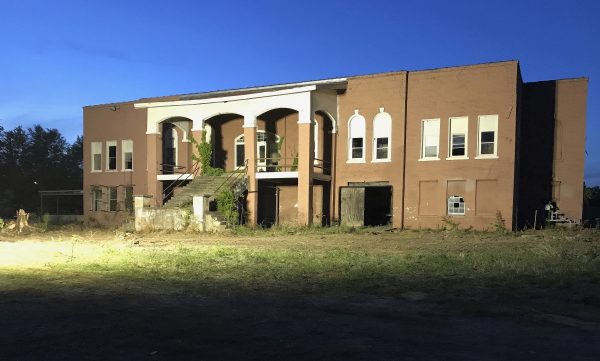Prison That Held 1st Georgia Electric Chair Being Torn Down

The two-story brick building that anchored the Georgia State Prison Farm in Milledgeville is being torn down by Baldwin County, to the outrage of some locals and history buffs.
Edwin C. Atkins via AP
A central Georgia county is tearing down an old, empty prison that was home to Georgia’s first electric chair and was linked to an infamous lynching.
The two-story brick building that anchored the Georgia State Prison Farm in Milledgeville is being torn down by Baldwin County, to the outrage of some locals and history buffs.
Demolition of the structure on Georgia 22 began last week.
Background, ‘Old Sparky’

Built in 1911, the prison was Georgia’s main correction facility for more than two decades. Beset by chronic overcrowding, it was replaced by the Reidsville prison in the mid-1930s.
In 1924, the Milledgeville prison housed Georgia’s first electric chair, dubbed “Old Sparky.” That same year, Howard Hinton, 22, was the first of 162 Georgia prisoners to die by state-ordered electrocution at the prison, according to a state Department of Corrections history of Georgia’s death penalty.
The penitentiary’s numerous occupants included Bill Miner, an infamous stagecoach and train robber who was confined there until his death in 1913.
Leo Frank Lynching
But its most notorious link was with the 1915 lynching of Leo Frank, a Jewish factory superintendent who was tried in Atlanta amid a climate of anti-Semitic prejudice and convicted of murdering a 13-year-old girl. Frank was abducted from the prison and later lynched near Marietta, nearly 120 miles away.
It was unclear if the kidnappers, many of them well-to-do Marietta citizens, had help from inside the prison. Frank was posthumously pardoned by the Georgia State Board of Pardons and Paroles in 1986.
No official public announcement was made about the demolition, Baldwin County Manager Carlos Tobar said in an email.
The building was beyond repair and would’ve cost over $5 million just to stabilize, county commission Chairman Tommy French said in a press release that was sent out after demolition began.
Baldwin County acquired the historic prison in 2013 when it failed to sell at a tax sale.
‘It’s Part Of Georgia’s History’
Edwin Atkins, who had organized a Facebook group dedicated to preserving the building, is one of the local residents distraught over its demolition. He said locals were unaware of the demolition until someone happened to drive by.
“It’s part of my family history, but more than that, it’s part of Georgia’s history,” Atkins said. His great-grandfather, the Rev. Edwin C. Atkins, was the prison chaplain. During his 14-year stint there, he preached sermons to the convicts and prayed with death row inmates before their executions. He maintained a detailed journal of daily occurrences in the prison, which Atkins still keeps today as a family heirloom.
Atkins was part of a grassroots effort to save the prison and the inmate artwork, much of it religious, that was still visible on its walls. Atkins recognizes the grim history of the prison, especially the disproportionate number of black prisoners who were put to death there, but calls it a “landmark in capital punishment.”
“If you don’t respect and promote your past, you don’t know where you’re going in the future,” Atkins said.
Historian Hugh Harrington called the disrepair of the prison a “major failing” on the county’s part. Harrington is the author of three books on Milledgeville’s history.
“I think as a society, we need to know what came before us,” Harrington said.
Members of the Milledgeville community are currently raising funds for a museum at the site of the Central State Hospital Depot. Baldwin County would “love” to donate the cornerstone of the prison to them, Tobar said. A historic marker for the prison will also be placed on site of the prison.








